Bridge Lever Taps and why valves are fitted opposite way around

In a traditional two-lever tap, we are accustomed to associating red sealed valves with hot water (which in fact is a clockwise opening valve) and blue sealed valves with cold water (which is in fact an anticlockwise opening valve).
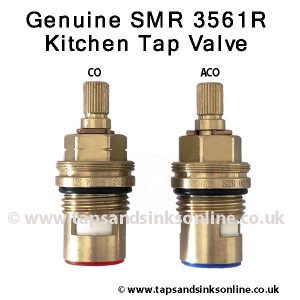
SMR 3561R Pair Valves
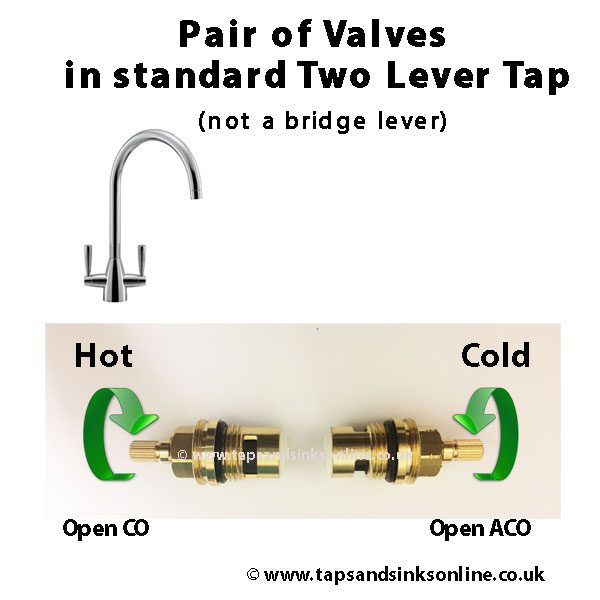
However, in a bridge lever tap, the valves are fitted in the opposite direction compared to standard taps.
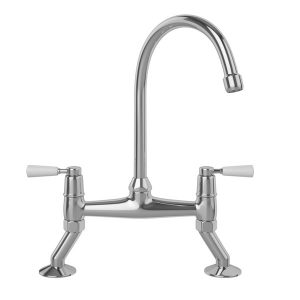
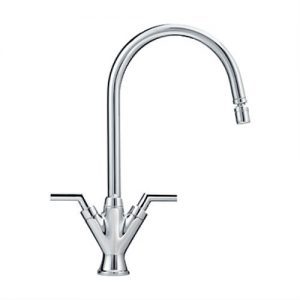
Vesta Tap from Franke
-
- This means that the handles of a bridge lever tap turn the valves in the opposite direction.
- So, in a bridge lever tap, the color-coding is also reversed.
- This means that a blue valve is actually fitted into the hot water feed, and conversely, a red valve is fitted into the cold water feed.
- See this blueprint here of the Franke Bridge Lever Tap and specifically the valves. You can see that the 1427-c (aka the ‘cold’ valve) is actually on the hot water feed side and vice versa for the cold water feed where the 1427R-H (aka the ‘hot’ valve) is in the cold water feed.
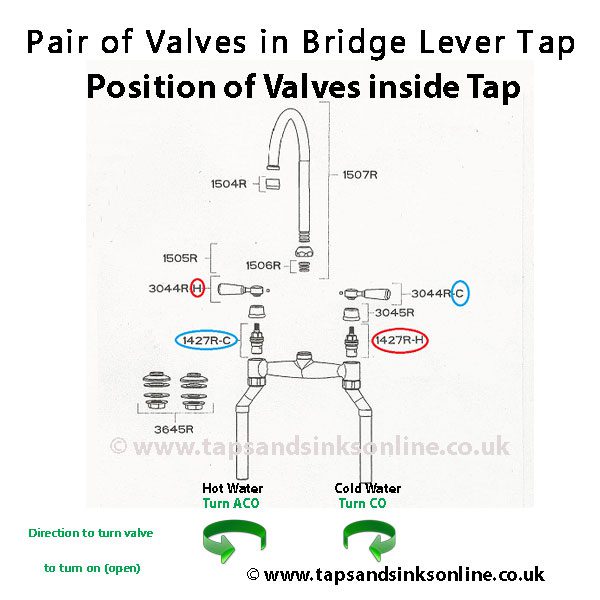 ]
]
This may seem counterintuitive at first, but it is designed this way to align with the movement of the handles. Therefore, in a bridge lever tap, the color-coding of red and blue valves is reversed to match the reversed movement of the handles.
How to identify CO and ACO valves where the seal colour is the same on both valves ?
The CO (aka ‘hot’ valve ) usually has a nick on the side of it’s nut. The ACO (aka the ‘cold’ valve) has no nick.
See both examples below. Whatever the colour of the seals, the CO valve always has a nick on the side of the nut .
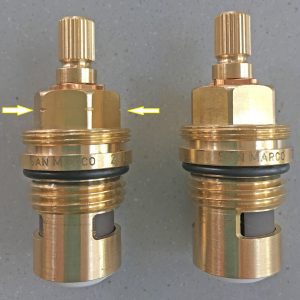
4276r Pair of Valves. The CO Valve has a nick on the side of the nut. There is no nick on the ACO Valve.
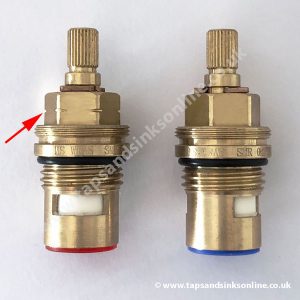
SMR 3561R Arrow pointing to nick on side of CO (aka ‘hot’ ) Valve
In pillar taps where both levers operate in the same direction then the same valve is in both taps. It is usually a ACO valve usually aka ‘cold’ valve.
7 easy steps to replace a valve
Posted in: Abode Kitchen Taps Spare Parts Guide, Astracast Taps Parts Guide, Bristan Tap Parts Guide, Carron Taps Spares Guides, Clearwater Tap Parts Guides, Franke Tap Spare Parts Guides, Helpful Tips, How to...., Howdens Lamona Kitchen Taps Spare Parts Guides, Mondella Taps Part Spares Guides, Perrin and Rowe Tap Spare Parts Guides, Plumbing Guides, Rangemaster Leisure Spare Parts Guides, SMR San Marco Spare Tap Parts Guides
Leave a Comment (0) ↓